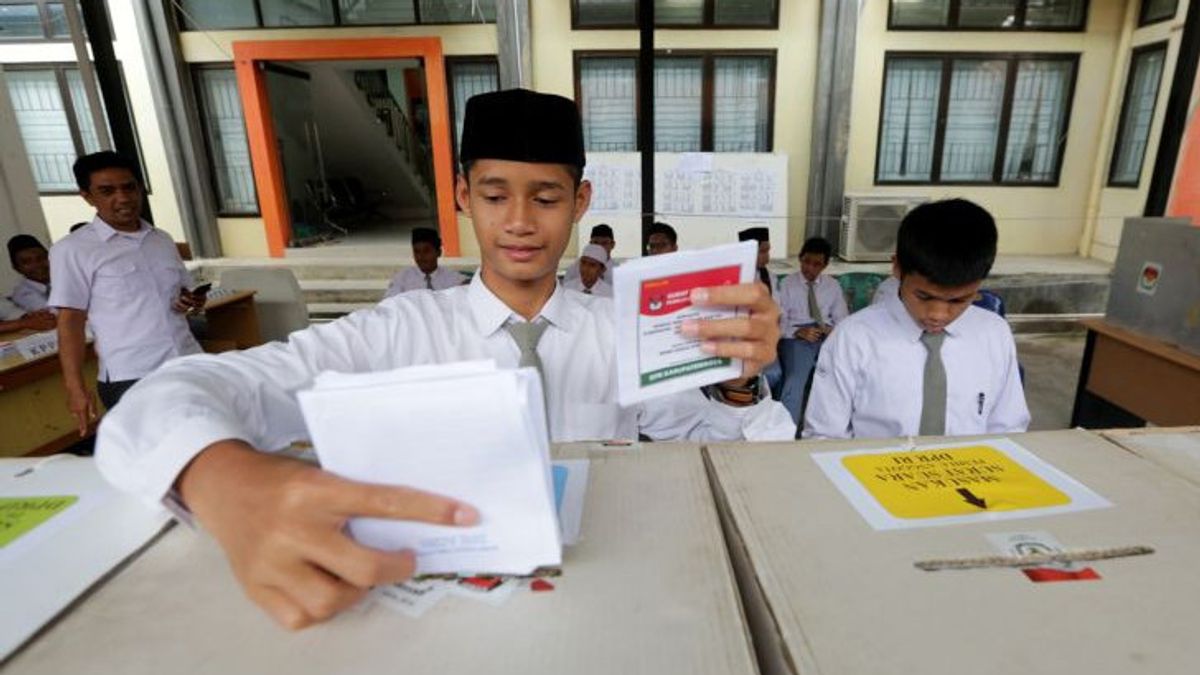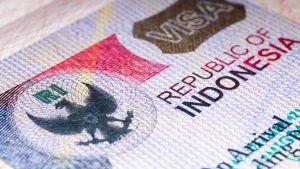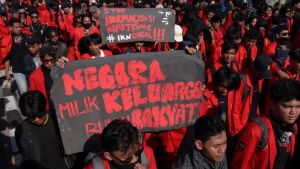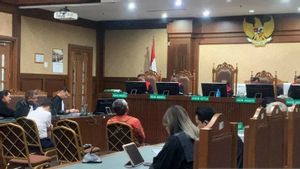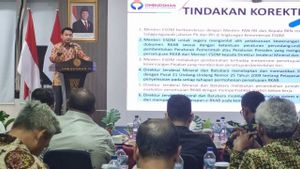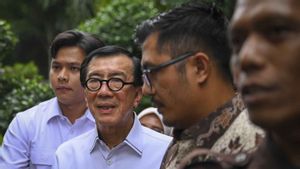JAKARTA - Elections are not only about selecting leaders for the present but also determining the direction of the country in the long term. Therefore, targeting young voters (millennials to gen z) is very important.
They will be leaders and decision-makers in the future. Their involvement in the current political process can shape mindsets, attitudes, and values that will have a positive impact on governance and development in the future.
All parties involved in the 2024 election contestation discussed the issue of young voters. Starting from political parties to the General Election Commission (KPU) running almost the same program, targeting young voters.
Maybe because based on survey data from the Center for Strategic and International Studies (CSIS) for 2022, young voters aged 17-39 years are close to 60 percent of Indonesia's total population. They have the potential to be decisive in winning the 2024 elections.
“Young voters make up a large portion of the potential voting population. The percentage of young voters is 56.45 percent in the 2024 election, so it has the potential to determine the results," said KPU member Yulianto Sudrajat in a Public Lecture on Democracy Education for Young Voters at Sebelas Maret University Surakarta (UNS) on 10 July.

“Young voters are also a strong foundation in building and strengthening democracy. In addition, young voters are widely connected to technology and active on social media so they have the ability to spread messages, influence public opinion, and mobilize the masses through digital platforms," Yulianto continued.
In the Open Plenary Meeting of the Final Voter List (DPT) Recapitulation at the National Level which was held by the KPU on July 2, 2023, it was determined that there were 204,807,222 voters for the 2024 Election. All of them were spread across 38 provinces, 514 cities/regencies, 7,277 sub-districts, 83,731 villages/wards, and 820,161 polling stations (TPS).
That's only data in Indonesia, while overseas voters are spread across 128 countries. The total number of Overseas Election Committees (PPLN), Mobile Ballot Boxes (KSK), and Post is 3,059.
In terms of the number of voters based on gender, in Indonesia, there were 101,467,243 men and 101,589,505 women. So the number of voters in Indonesia is 203,056,748. Meanwhile, the number of voters abroad includes 1,750,474 individuals, consisting of 751,260 men and 999,214 women.
Without Sustainable Strategy
The targeting of young voters for election contestation has actually been carried out since 2014. The KPU has raised the Volunteer for Democracy (Relasi) program, while the Election Supervisory Body (Bawaslu) has had a Participatory Supervisor Cadre School (SKPP) program since 2018. These two programs aim to increase voter participation, with the hope of improving the quality of the election.
Guslan Batalipu, a member of the National Secretariat of the Voter Education Network for the People (JPPR), wrote in Kompas that there was no consistency between the two institutions in carrying out their program so that it was sustainable.
"Unfortunately, these lofty ideals are not supported by continuity and consistency. The design of the program does not appear to have been taken seriously. The formation of relations is still momentum, only when approaching the General Election or Pilkada. Meanwhile, SKPP, since it was initiated to produce thousands of its cadres, has not yet shown a significant impact in encouraging the quality and political awareness of young voters," said Guslan in his article dated March 23, 2023.
As a result of the inconsistent implementation of the election education program for the younger generation, most of the potential young voters do not pay attention to political matters. They are more busy with virtual world activities, such as social media, online games, and the like.
CSIS data for 2022 shows that only 17.7 percent of the younger generation are interested in politics and express their political views via social media. The rest are more interested in things far from politics. In fact, 81 percent of Generation Z are currently online gamers.

There are many driving factors that make the younger generation, who are actually expected to become potential young voters, actually move away from political affairs. The poor performance of election organizers, changing regulations, incompetent individual organizers, and the inconsistency of election education programs are the driving factors.
“As a result, the participation of potential young voters is actually reduced. It is even threatened with disappearance," said Guslan again in his writing.
The decline in public participation in elections can at least be measured by the number of independent election monitoring institutions which tends to decrease. At the beginning of the democratic elections in Indonesia in 1999 there were 66 election monitoring bodies. Then in the 2004 election, the number decreased to 30.
In the 2009 election, the number of accredited election monitoring institutions at the KPU and Bawaslu even decreased, to 24. In the 2014 election, there were only 19 institutions left. Then it swelled to 51 institutions in the 2019 Election. Currently, the KPU has registered 20 monitoring institutions for the 2024 Election.
SEE ALSO:
Inconsistency is the weak point of election education for young voters. This is reflected in various data relating to the election which show sharp ups and downs.
This is a big homework for related parties, to really maximize the potential of young voters in elections. It is hoped that the ideals of honest and fair elections, clean elections, quality elections, and corruption-free elections will not just become empty jargon, which is written in large numbers on posters on the roadside. In the end, those jargons only end up in the trash can after the election is over.
The English, Chinese, Japanese, Arabic, and French versions are automatically generated by the AI. So there may still be inaccuracies in translating, please always see Indonesian as our main language. (system supported by DigitalSiber.id)
